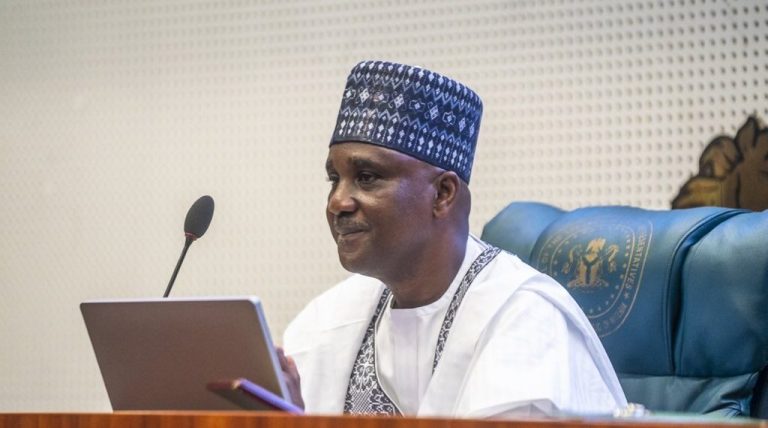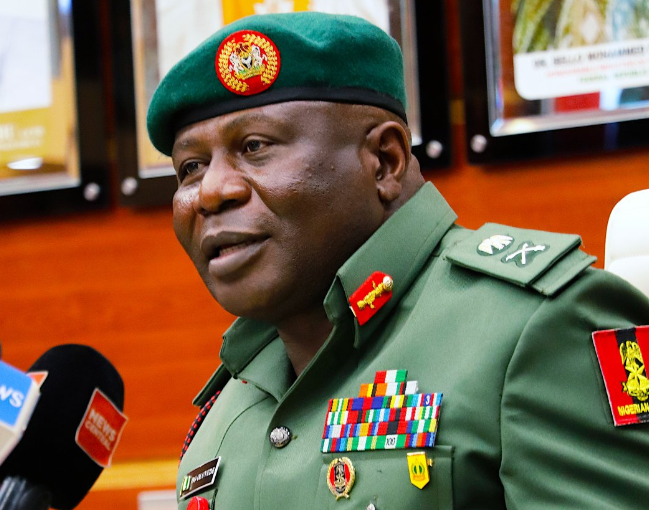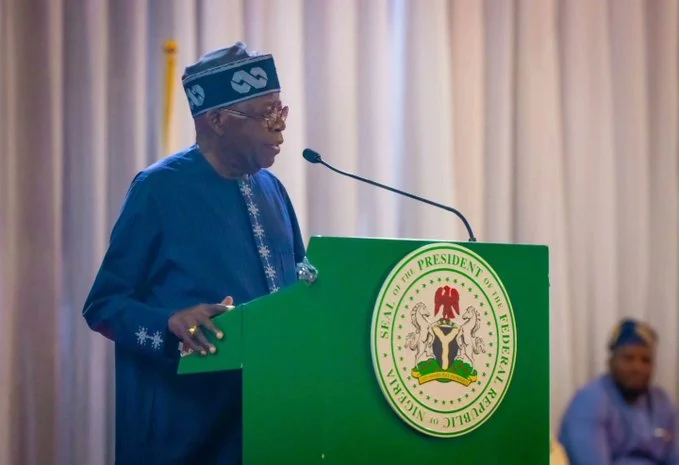On Wednesday, the House of Representatives instructed its Committees on Finance, Petroleum (Upstream and Downstream) to investigate reports from the Revenue Mobilisation Allocation and Fiscal Responsibility Commission “alleging that the NNPC (now Nigerian National Petroleum Company Limited) withheld N8.48tn as claimed subsidies for petrol.”
The House also emphasized that “the investigation will address the NEITI report stating that NNPC (now NNPCL) failed to remit $2bn (N3.6tn) in taxes to the Federal Government.”
The committees were tasked with verifying the total cumulative amount of unremitted revenue (under-recovery) from the sale of petrol by the NNPC between 2020 and 2023.
Meanwhile, the House approved the 2025-2027 Medium-Term Expenditure Framework (MTEF) and Fiscal Strategy Paper (FSP) ahead of President Bola Tinubu’s presentation of the 2025 Appropriation Bill to the National Assembly next week.
The MTEF is a multi-year plan for public expenditure that sets targets for budget spending and fiscal policy, ensuring these goals are met throughout the budget process.
The FSP outlines a country’s fiscal policy and medium-term macro-fiscal framework. It is a critical part of the annual budget process and the Medium-Term Budget Framework.
President Tinubu had transmitted the MTEF/FSP to the National Assembly on Tuesday, November 19, 2024, following the approval of the Federal Executive Council.
The Tinubu administration set the oil benchmark for 2025 at $75 per barrel, with oil production projected at 2.06 million barrels per day. The government also pegged exchange rate parameters at N1,400 per dollar, with a projected Gross Domestic Product growth rate of 6.4% per annum.
During the Committee of Supply meeting to consider the report of the Committees on Finance and National Planning and Economic Development, presiding officer and Deputy Speaker Benjamin Kalu expected the usual “carried” chorus from members when he began the clause-by-clause consideration of the 15 recommendations. However, the Minority Leader of the House, Kingsley Chinda, changed the tone of the discussion.
- Oil Benchmark Controversy
Chinda spoke out on the $75 oil benchmark, suggesting that the 2025 figure should reflect the 2024 benchmark, pointing to the higher prices reached in early 2024.
He said, “Because of the importance and sensitivity of MTEF, I will advise that we consider it thoroughly before we pass. This is one of the most important bills this parliament will ever pass. They recommend a $75, $76.2, and $75.3 benchmark per barrel of crude for 2025, 2026, and 2027 respectively.
“We are aware that for 2024, what we recommended was $77.96, which is the current budget. Today, it is about $85 per barrel. That is, in the first quarter of 2024, we achieved $85 and it increased further. If we are recommending $75 for next year, which is one month away, against the $77 we recommended for this year, I will advise that we retain the minimum we adopted for this year.
“Rather than increasing, we are reducing. I am not unaware of the issue of moving to gas-propelled vehicles, leaving fossil fuel. I am aware that the world is moving that way, and reliance on crude may be a bit reduced, but going for $75 might be a bit too low,” he said.
In response, the Chairman of the House Committee on Finance, Abiodun Faleke, defended the $75 per barrel benchmark as “responsible.”
He stated, “Crude oil prices in the international market are not controlled by any country. In 2024, we were fortunate that crises in some oil-producing countries led to higher prices. In 2025, there is likely to be more stability. If you set the benchmark too high, it bloats expectations. Today, the price has crashed to $74. I think our benchmark is reasonable.”
Ibrahim Isiaka, the member representing Ifo/Ewekoro Federal Constituency, Ogun State, supported this view, saying, “If we pass this MTEF today and there is a need for amendment, this House can sit and do the necessary review. There was a time when crude sold for $120 per barrel and a time it sold for $20. Let us see this as a working document subject to review.”
At the conclusion of the debate, the $75 benchmark was adopted.
Another contentious point was the significant increase in domestic crude oil production, projected to rise from 1.78mbdp in 2024 to 2.06mbdp, 2.10mbdp, and 2.35mbdp in 2025, 2026, and 2027, respectively.
Chinda questioned the rationale behind the 2025 projection of 2.06mbpd, saying, “We are making projections for domestic crude oil production from 1.78mbpd in 2024 to 2.06, 2.10, and 2.35mbdp for 2025, 2026, and 2027. If you look particularly at the social media, they will tell you that we are producing about 2mbpd, but the truth is, we are not. Although there is improvement, as of yesterday, the volume was 1.05mbpd.
“These are the things that will help us in proper planning so that the government does not have to always come to the National Assembly for borrowing, which also exposes us further to criticisms by Nigerians.
“We must be critical about how we set our benchmark. Our target has always been to produce 2mbpd. OPEC’s quota for us is 1.8mbpd. Putting this ambitious target of 2.06mbpd and 2.35mbpd, we might not really achieve it. If we don’t achieve it, we know we will be tightening our belts. We are already projecting that we will sell 2.06 million barrels, and if we sell less, we will get less funds. Let us reduce our target rate to 2 million barrels per day, which has always been our target,” Chinda argued.
Faleke defended the recommendation, stating, “As of today, production is close to 2mbpd. It is getting better. Operators of NUPRC gave us the details. If you put a lower projection, you are indirectly telling the operators not to work hard. Let us push them to work harder and get more funding for our country. There was a time during the era of Goodluck Jonathan when we were around 2.5mbpd. Mind you, this 2.06 projection includes all the concentrates. It is not just crude oil alone.”
Regarding the proposed exchange rate of N1,400 to the dollar for the next three years, a lawmaker from Nasarawa State, Gbefwi Gaza, said, “In the past few years, we have seen the volatility in our currency. In this country, virtually everything we do is pegged to the dollar. If we don’t have a very good proposed rate, what that means is that we have to increase our borrowing for any deficit.
“What do we have on the ground to make the naira stronger and make the dollar weaker? Yes, we have the Dangote Refinery, but we are in a phase of energy transition. We are going to the era of using more batteries and fewer fossil fuels; yet, fossil remains our main source of income.”
The House also adopted inflation rate projections of 15.75%, 14.21%, and 10.04% for 2025, 2026, and 2027, respectively.
Additionally, the House agreed that “The 2025 Federal Government of Nigeria budget proposed spending of N47.9tn, of which N34.82tn was retained. New borrowings stood at N9.22tn, made up of both domestic and foreign borrowings.”
Capital expenditure is projected at N16.48tn, with statutory transfers at N4.26tn and sinking funds at N430.27bn.

 BIG STORY3 days ago
BIG STORY3 days ago
 BIG STORY3 days ago
BIG STORY3 days ago
 BIG STORY3 days ago
BIG STORY3 days ago
 BIG STORY2 days ago
BIG STORY2 days ago
 BIG STORY2 days ago
BIG STORY2 days ago
 BIG STORY3 days ago
BIG STORY3 days ago
 BIG STORY1 day ago
BIG STORY1 day ago
 BIG STORY2 days ago
BIG STORY2 days ago
























